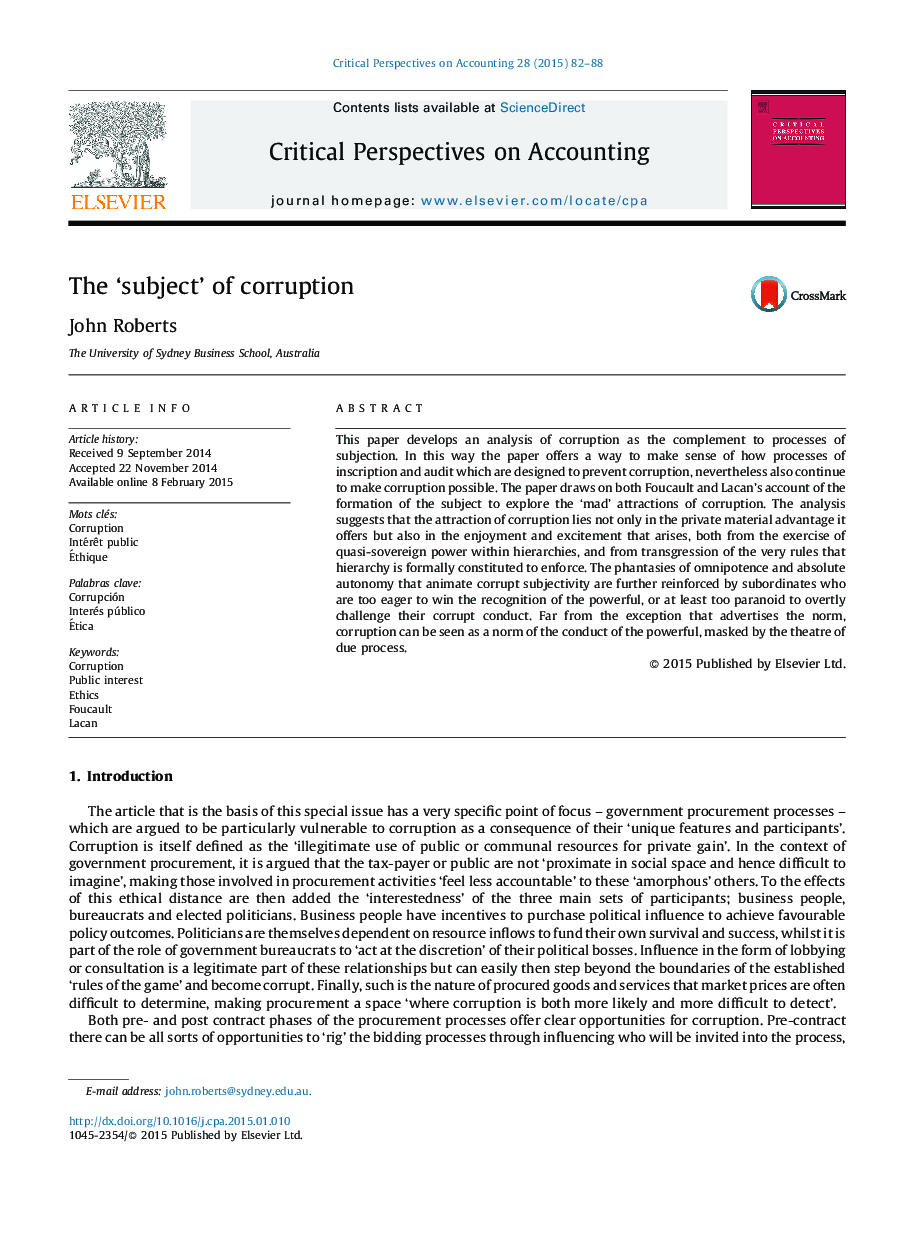| Article ID | Journal | Published Year | Pages | File Type |
|---|---|---|---|---|
| 1000738 | Critical Perspectives on Accounting | 2015 | 7 Pages |
This paper develops an analysis of corruption as the complement to processes of subjection. In this way the paper offers a way to make sense of how processes of inscription and audit which are designed to prevent corruption, nevertheless also continue to make corruption possible. The paper draws on both Foucault and Lacan's account of the formation of the subject to explore the ‘mad’ attractions of corruption. The analysis suggests that the attraction of corruption lies not only in the private material advantage it offers but also in the enjoyment and excitement that arises, both from the exercise of quasi-sovereign power within hierarchies, and from transgression of the very rules that hierarchy is formally constituted to enforce. The phantasies of omnipotence and absolute autonomy that animate corrupt subjectivity are further reinforced by subordinates who are too eager to win the recognition of the powerful, or at least too paranoid to overtly challenge their corrupt conduct. Far from the exception that advertises the norm, corruption can be seen as a norm of the conduct of the powerful, masked by the theatre of due process.
